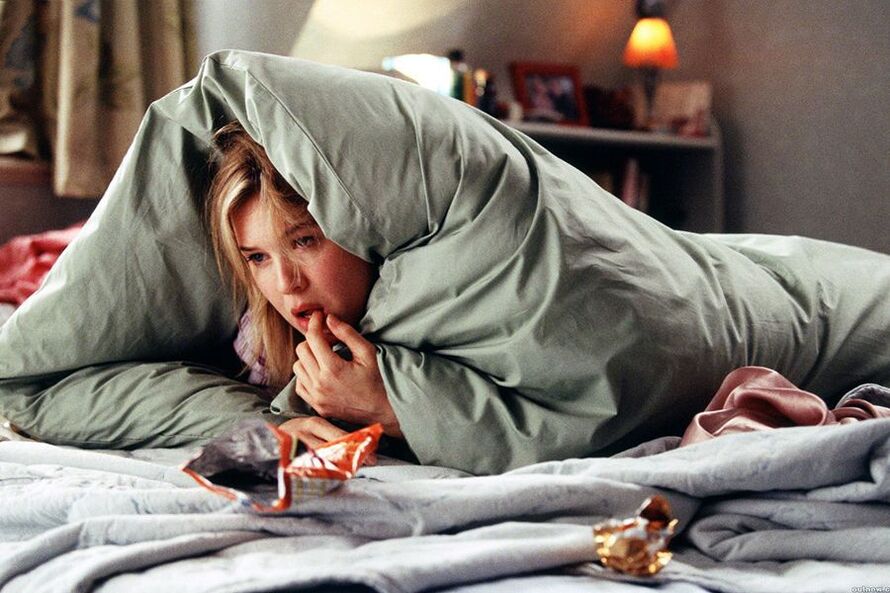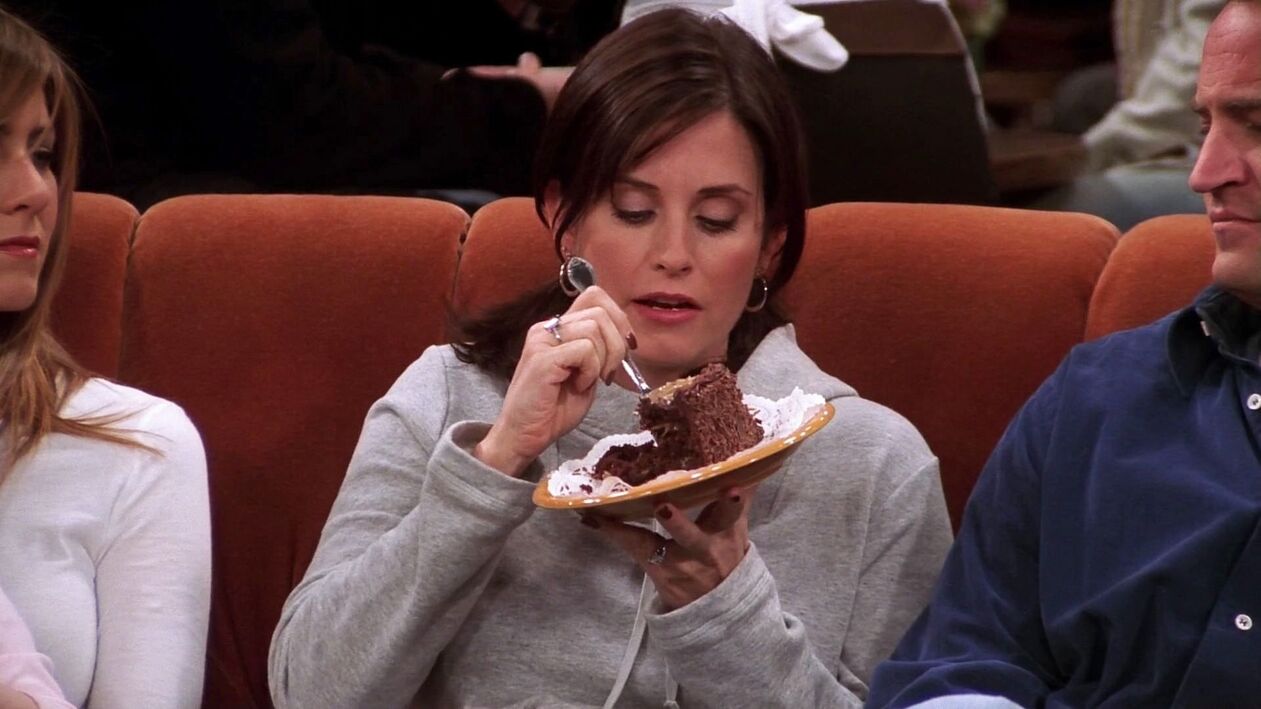
The title contains a popular query on search engines. But this article will not give advice like "count to 10 and drink a glass of water". Let's talk about something else: why forcing yourself not to eat to lose weight is a bad idea and how to deal with your attitude to food.
What's wrong with not eating to lose weight?
practical psychologist: If you have a healthy attitude towards nutrition, you are in touch with your body - you hear its signals and you know how to bargain with it. If the body signals hunger, you satisfy it, if it is full, you stop eating. The message "don't eat to lose weight" means this breaking of contact, self-confrontation and manifestation of automatic aggression. You take measures against yourself to achieve the goal (weight loss). This is not goodHEboring and unhealthyHEin.
psychiatrist: Most people who lose weight as a result of a restrictive diet regain their weight within 1-2 years. Moreover, 2/3 of them gain more than they lose.
endocrinologist:The message of forcing yourself not to eat to lose weight is illogical. It is important to understand: what happens to the body? Perhaps this is not a matter of malnutrition, but of hormonal characteristics.
And what is it all about - a healthy attitude to food?
psychiatrist: This is when regular meals and snacks are not accompanied by anxiety, shame, and guilt. Lack of "forbidden foods", diet and calorie counting. And when you let yourself enjoy the food.
endocrinologist:It's about treating food as a condition for a fulfilling, happy life. And not as a substitute for joy and pleasure.
practical psychologist: That is, when you are starving, stop when you are full, do not focus on the deficiencies that your body needs to "correct" with food or reject it, when you do not overeat, do not take over the emotions.
Can you give more details? How and why do we eat emotions?
practical psychologist: There are no good and bad feelings for the soul, it can cope with anyone. He doesn't need food, alcohol, gadgets, or television for this. But there are cases when a person drowns his emotions with food. I was upset, I ate a bowl of ice cream - it got easier. The behavior received positive reinforcement, and the person began to resort to this strategy repeatedly.
Consultant psychologist:Often times, people overeat because they can't rest. Let me give you an example. A young woman ran into a problem: she eats a lot in the evening and cannot stop herself. She turned out to work for three, she, because she does not know how to reject her colleagues. No time for a snack: it's always work. And he can't eat in the evening. In other words, people consume themselves, work overtime, and are in constant stress. How is lost energy replenished? Burger, fries, chocolate.
Is it wrong if a person eats when they are bored, worried, angry, tired or sad?
Consultant psychologist:In itself, this is neither good nor bad: food is unconsciously associated with security. Food for a newborn baby is not just food, it is closeness to the mother, calming, trust, acceptance, love, communication. Adults also sometimes eat to calm themselves. It's bad when it's the only way to deal with anxiety or fear.
psychiatrist: We meet different psychological needs with food. For example, having dinner with your family is intimacy. Going to a restaurant with friends closes the need for social interaction. The problem arises when food becomes a crutch for our negative experiences. This brings us to the topic of eating disorder (EID) or eating disorder. Psychiatry deals with these problems.
Wait wait! If I eat a chocolate bar an hour later and feel guilty - is this already a coin? Should I go directly to a psychiatrist?

practical psychologist:Confused issue. There are cases when a person, while running, eats chaotically, not paying attention to what he eats. Or when he's not really hungry - he eats out of boredom or out of companionship. It may be an eating disorder that can only be corrected with a nutritionist. But at the same time, eating other than hunger is also one of the symptoms of RIP. The line is too thin. And only a doctor can determine this. A psychiatrist in our country is busy with this.
endocrinologist:A person is constantly sad, worried, tired - and this catches on problems. Perhaps this is the result of constant stress. But they are also symptoms of endogenous depression and anxiety neurosis. A psychiatrist is also involved in diagnosing such conditions.
But isn't ERP - Bulimia and Anorexia? Difficult to confuse symptoms
psychiatrist: Not just bulimia and anorexia. Eating disorders also include psychogenic binge eating (also called paroxysmal or compulsive), eating inedible food (Pick's disease), and psychogenic loss of appetite. These are disorders included in the International Classification of Diseases (ICD). However, there are disorders that are not on this list, but that also attract the attention of psychiatry: picky eating disorder, orthorexia (when the desire for a healthy life crosses all boundaries) and pregorexia (the strictest restrictive diet in pregnant women).
practical psychologist: Psychology also distinguishes Binge Eating Syndrome (BOE): when a person eats almost nothing all day, does not sleep for a long time, or goes to the refrigerator when he wakes up frequently and wakes up.
Is obesity also an ERP?
psychiatrist: Not always. There can be many reasons for this - these are genetics, a sedentary lifestyle and hormonal disruptions. It is not possible to equate RPP with obesity.
practical psychologist: Yes, I agree. There are people who are obese with absolutely healthy eating behaviors. And the opposite happens - for example, patients with anorexia nervosa.
Have you heard that CHP's problem is mainly about women, adolescents and models? This is true?

Psychiatrist:Of course not. The disorder can develop at any age in both men and women. For example, picky eating disorder occurs most often in children - the child eats only certain foods.
practical psychologist: Anorexia and bulimia are more common in women. But compulsive overeating - equally in men and women. Therefore, it is not possible to say that the CHP is entirely a women's problem. And yes, adolescents engaged in aesthetic sports, models, athletes (rhythmic gymnastics, figure skating, sports dancing), TV presenters, bloggers, actresses - anyone who is in sight and whose job depends on appearance is at risk. But the problem can pass any person, including those who are far from the modeling business or beauty blogs.
Any nutritional problem is believed to be an attempt to attract attention. This is true?
practical psychologist: There is such an opinion, but it has not been scientifically confirmed. Yes, RPP can occur when the person is not accepted by peers during therapy. For example, for a 13-15 year old girl, it is important for boys to look after her and her friends to approve, so she goes on a strict diet. It also happens that problems with food are often a child's unconscious attempt to attract the attention of parents. But these are very special cases. It is wrong to think that the need for attention is the root cause of eating disorders.
So what is the reason?
practical psychologist: There are three groups of causes: biological, psychological and social. Biological - for example, a genetic predisposition to RPC - can unfortunately be hereditary. Psychological - domestic violence, prohibition of the expression of negative emotions, violation of parent-child bonding (for example, if the child has cold, distant parents). Social - the cult of the ideals of beauty, delicacy, tyranny.
psychiatristA: There are certain personality traits that can contribute to the development of EID, such as perfectionism or excessive responsibility. The characteristics of the eating behavior in the family also affect the attitudes towards weight and shape. The child may be rewarded with sweets for good behavior and work, and that stuck: You can have a candy because I'm fine. Very good? I'll take ten
Consultant psychologist:Many patients with ECD have experienced physical or sexual abuse. Also for many, food helps to derive secondary benefits from the condition. For example, one of my clients needed weight to protect herself from men. During therapy, we learned that the girl got into an unpleasant situation with an adult man of school age. The client was surprised to remember this: this story seemed "forgotten", but it continued to influence the behavior of the girl in adulthood. They also revealed the belief that men only love the weak. If so, the extra weight helped her "be safe", that is, without men.
How common are eating disorders in society?

psychiatrist: The prevalence of RPC in the world is thought to be around 9%. The prevalence is higher in risk groups. There are studies of adolescent girls reporting that approximately 13% have symptoms of CRP by age 20. Anorexia is one of the deadliest mental disorders beyond just chemical addiction.
practical psychologist: It is difficult to give exact figures because people with PAH often do not realize that they need help at all. The figures for the United States, as it is central to eating disorders research and statistics: There are approximately 30 million people living with eating disorders. There are twice as many women as men (10 million versus 20 million). And every hour in the world at least 1 person dies from the consequences of RPE.
What are the symptoms of RPE? Can I diagnose myself?
psychiatrist: Generally speaking, the main symptoms are:
- A person vomits himself after eating or compensates for what he has eaten in other ways, for example, excessive physical exertion (physical bullying), laxatives and diuretics.
- Strong fixation on weight and figure (you can not add / lose a single gram or centimeter! ).
- Numerous attempts to reduce weight and body weight swing.
- Various numerous rules in nutrition (I eat only protein, only vegetables, only red).
- Persistent thoughts, fears, and feelings of guilt and shame about food intake and body weight. When thoughts and behaviors about food bring a lot of pain.
- Loss of control over the amount eaten.
But many may have such symptoms to varying degrees. Is there a more accurate diagnosis?
endocrinologist:RPD is a systemic chronic disease. It causes metabolic changes in systems and organs, changes in human neurohumoral regulation. This is a complex problem that can manifest itself in neuroses, organic pathologies of the brain, organic lesions and depressive disorders.
But first you need to determine the cause of the symptoms. For example, if a person rushes to the refrigerator at night, you need to find out the glycogen level to exclude insulin resistance and type 2 diabetes.
What if you find out that you or your loved ones have an RPP?
practical psychologist: If available - consult a psychiatrist for diagnosis. If you suspect an RPP in a loved one, it is more difficult: he often refuses, not wanting to admit that there is something wrong with him. And unnecessary pressure can undermine trust. Let your loved ones know that you are there for them and that you are ready to help and support them.
Who Treats ECD? Just a psychiatrist?
psychiatrist: Not. A psychiatrist makes the diagnosis. And depending on the disease a psychiatrist, psychotherapist, clinical psychologist (as prescribed by a psychotherapist) heals. Why is it so important to see a psychiatrist in the first place? Because it can reveal comorbid conditions such as depression or anxiety disorder, which are found in about 80% of cases in people with RPD. Treatment depends on the severity of the disease. It can be drug therapy in combination with psychotherapy (group, cognitive-behavioral, dialectical-behavioral). Family therapy is also recommended.
Consultant psychologist:Anorexia and bulimia are primarily treated by a psychiatrist. Emotional overeating - psychologist, counselor psychologist. Obesity - a nutritionist-endocrinologist together with a psychologist or psychotherapist (you need to check hormones, whether the metabolism is disturbed).















































































